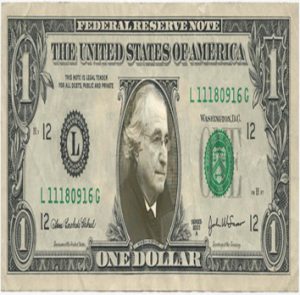Over the years there have been several adaptations regarding the biblical story of Noah’s Ark, whether the comedy film starring Steve Carell, or a film narrating the Bible story. However, the adaptation that the majority of people do not recognize is the Bible story itself. The story of Noah and his ark was actually adapted from the eleventh and twelfth tablets of the Epic of Gilgamesh. The Epic of Gilgamesh is an epic poem that narrates the adventures of a fictional hero named Gilgamesh.1 The reason that Noah’s Ark is an adaptation is due to the many parallels between the two stories. Some similarities include the wrath of a deity upon humankind, as well as the creation of a type of vessel in order to survive the flood.
Before the 19th century, the Bible was believed to be the most credible source of historical information about the Ancient Near East. However,“The Epic of Gilgamesh is the oldest surviving epic poem in history, dating from about 2500 B.C.E.”2 The discovery of the Epic of Gilgamesh, specifically the tablets containing the excerpts detailing the Great Flood myth, caused turmoil among the ancient historical community, due to the fact that the Great Flood myth was written about a thousand years before the Bible story of Noah.3

The eleventh tablet narrates one of Gilgamesh’s adventures in search for immortality.4 Yet his search leads him to a wise man named Utnapishtim. Utnapishtim then reveals to Gilgamesh how he achieved immortality. He begins to explain how the god Ea informed him of the devastating flood created by the gods in order to extinguish humanity. He was instructed to construct a boat of immense size and to tell the people of Shuruppak to assist him in the building of the boat. Once the boat was complete, he was to load it with every living thing and his family in order to survive. Seven days later the great flood began its reign of destruction upon humankind. During this time, Utnapishtim and his ark ran aground on a mountain peak. He then released a dove in order to find land but the dove returned, not having found land. The same thing happened when he sends a swallow. However, the third time he releases a raven that never returned. Upon reaching land, the gods in heaven realized the great service Utnapishtim had done by saving humankind; thus, they granted him and his wife eternal life.
Much like the Epic of Gilgamesh, the story of Noah’s Ark conveys a similar destruction tale.5 The book of Genesis narrates how God began to despair over the creation of humankind due to humanity becoming sinful and evil. Therefore, God decided to create an immense flood in order to destroy and cleanse the world. However, God chose a man named Noah due to his immaculate behavior, and He instructed him to build a boat or an ark. Once he completed the ark, he was to load it with a pair of every animal on earth along with his family. For the next forty days, God plunged the earth with devastating rains, causing the earth to be flooded for a whole year. Noah then released a dove and it never returned, meaning that it had found dry land. Once the water receded, the earth was restored and became once again fertile. God made a covenant with Noah promising that his lineage will be fertile and that he will never destroy humanity again by flood.
The parallels between both stories are clear to see, due to the similarity in content and story structure. For example, both narratives include an extremely powerful deity or deities, that form a plan to wipe out humankind by creating a great flood in order to restore the earth, as well as how a single man was chosen by a higher power to save humanity.6 Another parallel is how both individuals were instructed to construct a boat in order to survive the coming flood. The content of both vessels is also similar due to them being loaded with all the living things on earth, even though in the Epic of Gilgamesh it was all living things while in Noah it was the pair of every animal on earth, along with their families. Once the earth was flooded, both Utnapishtim and Noah release birds in order to find out if the land was yet dry. Finally, both men upon reaching land are rewarded by higher powers, due to their involvement in saving humanity, and the creation of a new world.
- Benjamin R. Foster, Douglas Frayne, and Gary M. Beckman, The epic of Gilgamesh: a new translation, analogues, criticism (New York: Norton, 2001), 60-65. ↵
- Jerry Bentley, Herbert Ziegler, Heather Streets Salter, Traditions & Encounters: A Brief Global History Volume 1 (New York, NY: McGraw-Hill Publishers, 2016), 17. ↵
- James B. Pritchard, Ancient Near Eastern texts relating to the Old Testament (Princeton, N.J.: Princeton University Press, 1969), 3. ↵
- Pritchard, Ancient Near Eastern texts, 273. ↵
- Jerry Pinkney, Noah’s ark (New York : SeaStar Books, 2002), 20-30. ↵
- Pritchard, Ancient Near Eastern texts, 10. ↵



110 comments
Alexandra Camarena
Growing up in a catholic family the story of Noah’s Ark was something I was used to hearing. However, as I began high school I had heard of the Epic of Gilgamesh but never really looked into it. With this being said I was shocked reading this article because of the similarities between the two stories. I thought this author described the stories very well and provided a lot of detail.
Serenity Kamenski
First reading the beginning part, I assumed that Noah’s Ark and the Epic of Gilgamesh would only have minor similarities, like maybe the flood and a huge boat. However, upon reading the comparisons, the parallels are almost identical in many more aspects of both stories. It does seem that it can be interfered that Noah’s Ark adapted many elements from the Epic of Gilgamesh, which really isn’t any uncommon practice as seen in other writings like the gospels.
Trenton Boudreaux
In my theology class, we discussed how the Bible doesn’t serve as a history textbook, but rather a spiritual guide, hence the two creation myths, but what I find interesting here is that a biblical story could have been inspired by an even older myth. A very well written article that brought to life new elements to a classical bible story.
Elliot Avigael
The parallels have between Noah’s Ark and the story of Utnapishtim has always puzzled me. Besides the Ark Of The Covenant, I think Noah’s Ark is probably the second most significant mystery of the Bible. People have claimed to have found the Ark, (somewhere in Iran I believe? I’ve heard claims that it’s in Turkey), but we can never be sure.
I think historical dates are never exactly definitive, but I think the fact that the accepted narrative is that the Epic of Gilgamesh occurred prior to the Biblical story is a huge test of faith for those that practice. As someone who is religious, studying history and the Bible has always been something I believed can healthily coexist together while also helping us stand the test of faith.
Really nice article. A simple story yet one that has such a deep meaning; well done.
Janaya Felder
It’s so interesting that there is another story identical to Noah’s Ark. Growing up, I knew the story of Noah’s Ark very well but I’m surprised that no one brought up The Epic of Gilgamesh. Obviously it seems like The Epic of Gilgamesh inspired the story of Noah’s Ark and I suppose maybe the layout of Noah’s Ark decided to follow an already popular story when it was being written.
Eric Hernandez
This article hit close to home being that I grew up in the catholic faith. As I read through the article I was amazed by reading the story of Gilgamesh and how similar it was the Noah’s ark story I had heard so many times as a child. Reading the two stories, is really cool just thinking how drastic the event is but it also leaves me wondering if something like that actually has happened on Earth.
Manuel Rodriguez
This is a really great article regarding an amazing story that many of us might have not heard it accurately. I appreciate our author’s reminder to not only remember the true story of Noah’s Ark, but to get closer to our faith. Growing up as a catholic and a attending a Marianist university, I’ll be the first one to admit that I am invested in my faith as much as I should be and this article is a great reminder of how I can do better.
Diego Oviedo
It’s fascinating how these two are very similar. I have heard about Noah’s ark but I was never told the story of Gilgamesh. It would be right to assume that The Epic of Gilgamesh had an influence on Noah’s Ark. With all the similarities that they both have, it can be seen that they’re identical up to a point with certain things being different for both stories. It’s interesting how both The Epic of Gilgamesh and Noah’s Ark are written by different people from different times.
Alyssa Vasquez
I attended catholic school for 9 years. I am very familiar with the story of Noah’s Ark. I’ve always loved hearing the story, but I don’t think I’ve ever heard The Epic of Gilgamesh. I never new the was a story s similar and had such a heavy influence on Noah’s Ark. I lived reading this article and seeing the similarities presented in bot stories.
Camille Kwan
I absolutely love this article. The parallels between the two stories are remarkable. For some reason I always believed the tale of Noah and the arc was real, but after reading this, the relationship is uncanny and I believe Noahs arc is a fable. It is crazy how two religions with different Gods and beliefs can create two stories so similar and with the same teachings. I also enjoyed learning about gilgameshs adventures and how he sent three birds out and did not lose hope. Such an informative article!